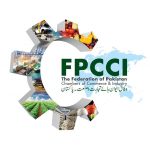This is the first time any of the standing committees of the Federation of Pakistan Chambers of Commerce & Industry met digitally through the video conferencing system. Convener of the committee Naeem Qureshi chaired the meeting.
“We may simply create another environmental catastrophe that will further aggravate the COVID-19 health emergency if in case the medical waste of the coronavirus +ve patients is not disposed of scientifically as per the WHO guidelines for the purpose,” said senior environmentalist Saquib Ejaz Hussain while participating in the meeting.
He emphasized that whatever emergency planning being done on a day-to-day basis by the federal and provincial governments to tackle the COVID-19 crisis should take into account the aspect of the proper disposal of the toxic medical waste being generated at the hospitals due to the treatment of the Coronavirus +ve patients.
He said that if proper systems were not applied and conventional means were used to dispose of such highly hazardous biomedical waste then there are chances that this clinical trash would become another source of local spread of the Coronavirus infections.
He said that the water bodies in surroundings of Karachi would be massively polluted if such biomedical waste was disposed of there through usual municipal means of the trash disposal being used in the city.
He said that lives and health of the people of Karachi and that of the other cities had to be safeguarded against such environmental hazard.
Convener of the committee Naeem Qureshi said that the environmental and other related government authorities should fulfil their responsibilities to ensure working of proper waste treatment systems at major hospitals of the city in view of the COVID-19 emergency.
He said that such waste treatment systems should be in place especially in the backdrop that a makeshift isolation centre and field hospital to treat COVID-19 patients had been established at Expo Centre Karachi that is in the middle of the city.
The meeting also discussed the incident of mysterious gas leakage in Keamari in February this year that caused several fatalities. The participants were of the view that the SEPA had yet to come up with a thorough and conclusive report of the inquiry into the incident so as to determine its exact causes. The meeting expressed serious dissatisfaction with the inquiry report of the International Centre for Chemical and Biological Sciences of the University of Karachi as it hurriedly determined Soybean dust as the sole cause behind causalities in Keamari without much scientific investigation.
The meeting also noted that investigation into the incident of gas leakage at factory in Port Qasim of last month was also inconclusive.
The meeting decided to send separate letters to the Pakistan Environmental Protection Agency, Sindh Environmental Protection Agency, Ministry of Maritime Affairs, Karachi Port Trust, and Port Qasim Authority urging them to fulfil their obligations concerning the instances of Keamari gas leakage, chlorine leakage in PQA, handling of coal at PIBT and its transportation to distant areas, waste disposal by major hospitals, and hazardous effluent discharge from industries of the city. Meeting were attended by Saquib Ejaz, S M Farooq, Saadia Tariq, Sajda Khalid. Ali asghar, Nighat Parvern. Nadeem Hussai and others





